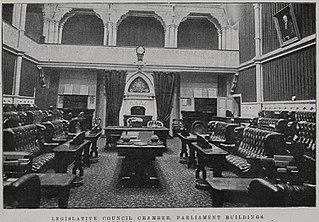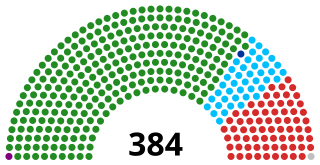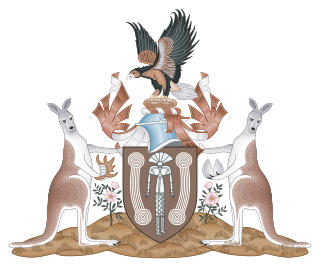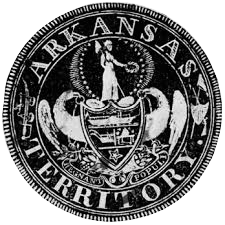A member of parliament (MP) is the representative of the people who live in their constituency. In many countries with bicameral parliaments, this term implies members of the lower house, as upper houses often have a different title. Member of Congress or Deputy is an equivalent term in other jurisdictions. Parliamentarian is also sometimes used to describe members of parliament, but the term may also be used to refer to unelected government officials with specific roles in the parliament, such as the Senate Parliamentarian in the United States, or to imply the characteristic of performing the duties of a member of a legislature, e.g. "The two party leaders often disagreed on issues, but both were excellent parliamentarians and cooperated to get many good things done."

The speaker of a deliberative assembly, especially a legislative body, is its presiding officer, or the chair. The title was first used in 1377 in England.

The Parliament of the Democratic Socialist Republic of Sri Lanka is the supreme legislative body of Sri Lanka. It alone possesses legislative supremacy and thereby ultimate power over all other political bodies in the island. It is modeled after the British Parliament.

The New Zealand Legislative Council existed from 1853 until 1951. An earlier arrangement of legislative councils for the colony and provinces existed from 1841 when New Zealand became a colony; it was reconstituted as the upper house of a bicameral legislature when New Zealand became self-governing in 1852, which came into effect in the following year.

Elections in Zambia take place within the framework of a multi-party democracy and a presidential system. The President and National Assembly are simultaneously elected for five-year terms.

The Kerala Legislative Assembly, popularly known as the Niyamasabha, is the State Assembly of Kerala, one of the 28 States in India. The Assembly is formed by 140 elected representatives. Each elected member represents one of the 140 constituencies within the borders of Kerala and is referred to as Member of the Legislative Assembly (MLA). The present Kerala Legislative Assembly consists of 140 elected members and one member nominated by the Governor from the Anglo-Indian Community.

The National Assembly of Tanzania and the President of the United Republic make up the Parliament of Tanzania. The current Speaker of the National Assembly is Job Ndugai, who presides over a unicameral assembly of 393 members.

The Speaker of the Parliament of the Democratic Socialist Republic of Sri Lanka is the presiding officer of the chamber. The current Speaker of the Parliament is Mahinda Yapa Abeywardena, in office since 20 August 2020. The Speaker fulfills a number of important functions in relation to the operation of the House, which is based upon the British Westminster Parliamentary system.

The Uttar Pradesh Legislative Assembly is the lower house of the bicameral legislature of Uttar Pradesh. There are 403 seats in the house filled by direct election using single member first-past-the-post voting system.

The President of the National Assembly is the presiding officer (speaker) of the National Assembly of Thailand. Since 1997, the office has been an ex officio position occupied by the Speaker of the House of Representatives of Thailand. The President is therefore an MP, usually from the majority party in the House of Representatives. The President is elected at the beginning of a House session immediately after an election, there are no term limits for the office. In the aftermath of the Coup d'état in 2014, the function of legislative assembly was turned over to the junta-controlled National Legislative Assembly, which Pornpetch Wichitcholchai, President of the National Legislative Assembly, is occupying ex officio position of President of the National Assembly.

The Central Legislative Assembly was the lower house of the Imperial Legislative Council, the legislature of British India. It was created by the Government of India Act 1919, implementing the Montagu–Chelmsford Reforms. It was also sometimes called the Indian Legislative Assembly and the Imperial Legislative Assembly. The Council of State was the upper house of the legislature for India.

The Parliament of the Northern Territory is the unicameral legislature of the Northern Territory of Australia. It consists of the Northern Territory Legislative Assembly and the Administrator of the Northern Territory, who represents the Governor-General. It is one of three unicameral parliaments in Australia, along with those of Queensland and the Australian Capital Territory. The Legislative Assembly replaced the previous Legislative Council in 1974. It sits in Parliament House, Darwin.

Pandit Ram Kishore Shukla was an Indian politician and an activist for Indian independence.
Sir Thomas Spurgeon Page CBE was a Northern Rhodesian politician who was a member of the Legislative Council and its first Speaker.
Robinson Mwaakwe Nabulyato was a Zambian politician. He served as a member of the Legislative Council of Northern Rhodesia between 1954 and 1958 and then Speaker of the National Assembly of Zambia from 1968 until 1988 and again from 1991 until 1998.
Nakatindi Yeta Nganga (1922–1972) was a Lozi aristocrat and Zambian politician. Jointly one of the first women elected to the National Assembly, she was also the country's first female junior minister.

The General Assembly of the Territory of Arkansas, commonly known as the General Assembly, was the legislature of the U.S. territory of Arkansas, from 1819 to 1835. The General Assembly was directly elected, albeit on a restricted franchise. Its legislative power was subject to veto by the appointed Governor.

Mutale Nalumango is an educator and politician who is the 14th and current vice-president of Zambia, the second woman to hold the position. She previously served as vice-president of the Secondary Schools’ Teachers Union of Zambia before resigning to begin her political career in 2001. She first became a member of the National Assembly in 2001 as a member of the Movement for Multiparty Democracy, representing the Kaputa Constituency. She later served as deputy minister of information and deputy speaker in parliament, the first woman to hold that position.

Pillsbury Wesley Nyirenda was a Zambian politician and the first elected Speaker of the National Assembly of Zambia after the it was renamed from Legislative Council of Northern Rhodesia. He also as a member of parliament for Fort Jameson from 1964 to 1973 before the Seat was abolished and split into Chipata East, Chipata North and Chipata West. He was also the indigenous Zambian to be President of NOCZ taking over from George Crane in 1968.















